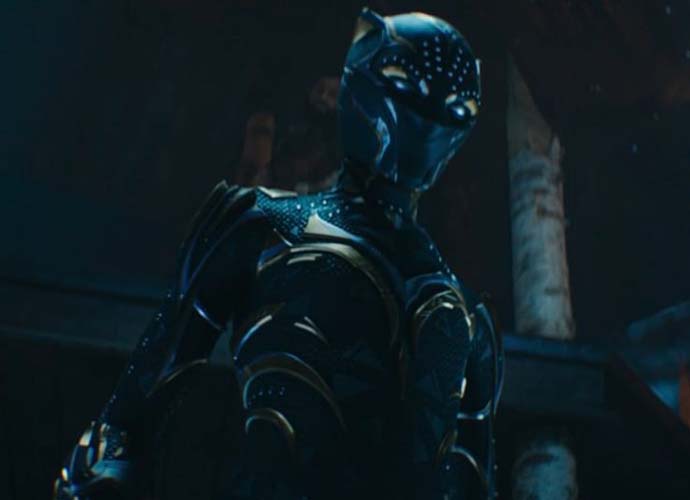‘Black Panther: Wakanda Forever’ Movie Review: A Factory-Produced Marvel Movie With Touching Tribute To Chadwick Boseman
In the opening of Ryan Coogler‘s Black Panther: Wakanda Forever, we are thrust into a dire situation.
King T’Challa (Chadwick Boseman), aka the Black Panther, has been infected with an incurable, deadly illness that his sister Shuri (Letita Wright) cannot cure despite her best efforts. She continually pushes herself, but just when she is close to finding a cure, her mother Ramonda (Angela Bassett) arrives to reveal the dark news: T’Challa is with the ancestors now.
Following his death, the film honors and pays tribute to not just the character of T’Challa, but Chadwick Boseman as well. The royal family weep for their fallen loved one and the Wakandas engage in a dance to mourn the lost of not just a great king, but a great young actor that could have been one of the biggest movie stars of the 21st century. It’s an incredibly touching and heartfelt moment that, for a second, I completely forgot that I was watching a Marvel movie.
Unfortunately, the movie didn’t take very long after this 10-minute opening to remind me that this is yet again another Marvel movie that follows that exact same template and formula and is littered with the exact same cliches and tropes that every film in this universe has had since its inception. A tired out Hero’s Journey story structure, Marvel’s “quippy-cringe” branded humor, and a big final battle where CG action figures mash into each other.
In retrospect, I was incredibly disappointed with the opening of this film because the first 10 minutes of Wakanda Forver is so genuine and enthralling that that level of engagement did not return for the rest of this overblown, two hour and 41 minute long film. There is so much exposition that is being thrown at the audience about every little detail, whether it be about the plot or small lore details, and there are so many action scenes thrown at the audience to break up that monotony.
The film does everything it can to feel epic and grand-scale, and while it does accomplish that, it forgets to provide something for fans to latch onto, to become emotionally invested. What’s particularly frustrating is that there are small elements in this film’s story that would make for an incredibly compelling narrative about revenge, mourning loved ones and moving on from the past.
While these kernels of ideas are interesting, the film does very little to properly develop them, instead choosing to prioritize other things like setting up characters for future movies and having epic-scale fight scenes.
What was particular frustrating is the character of Namor (José Tenoch Huerta Mejía), the king of Talokan, an ancient underwater civilization, not because Namor is a badly written character. Far from it, he is by far the most interesting character in the entire film. What was frustrating is that there are elements about his character that if properly developed and flourished, would have made an incredibly compelling and engaging villain to watch.
What was particularly interesting is his backstory in which he reveals to Shuri and the audience as well, that he was born during the Spanish Conquest of the Americas, and how the atrocities the Spanish committed against the Indigenous people fueled his hatred towards the Surface World and his desire to burn the world. In many ways, Shuri and Namor are very similar: they are not only characters hurt by the loss of their loved ones and fueled with anger/hatred, but they are also rulers of powerful empires built on Vibranium.
The most interesting angle of the film was exploring how Namor and Shuri are one in the same, and yet instead of further exploring these parallels, it instead chooses to focus on plot points that are uninteresting like anything involving Agent Ross (Martin Freeman) and the CIA or bloated action scenes.
While I completely understand why people are loving this film, and to give credit where credit is due, there are genuinely good aspects about the movie that is worth watching. In the end though, this is just yet another Marvel movie that latches onto the Marvel formula, leaving me very bored and engaged for most of the runtime.
Get the most-revealing celebrity conversations with the uInterview podcast!




 by
by 



Leave a comment